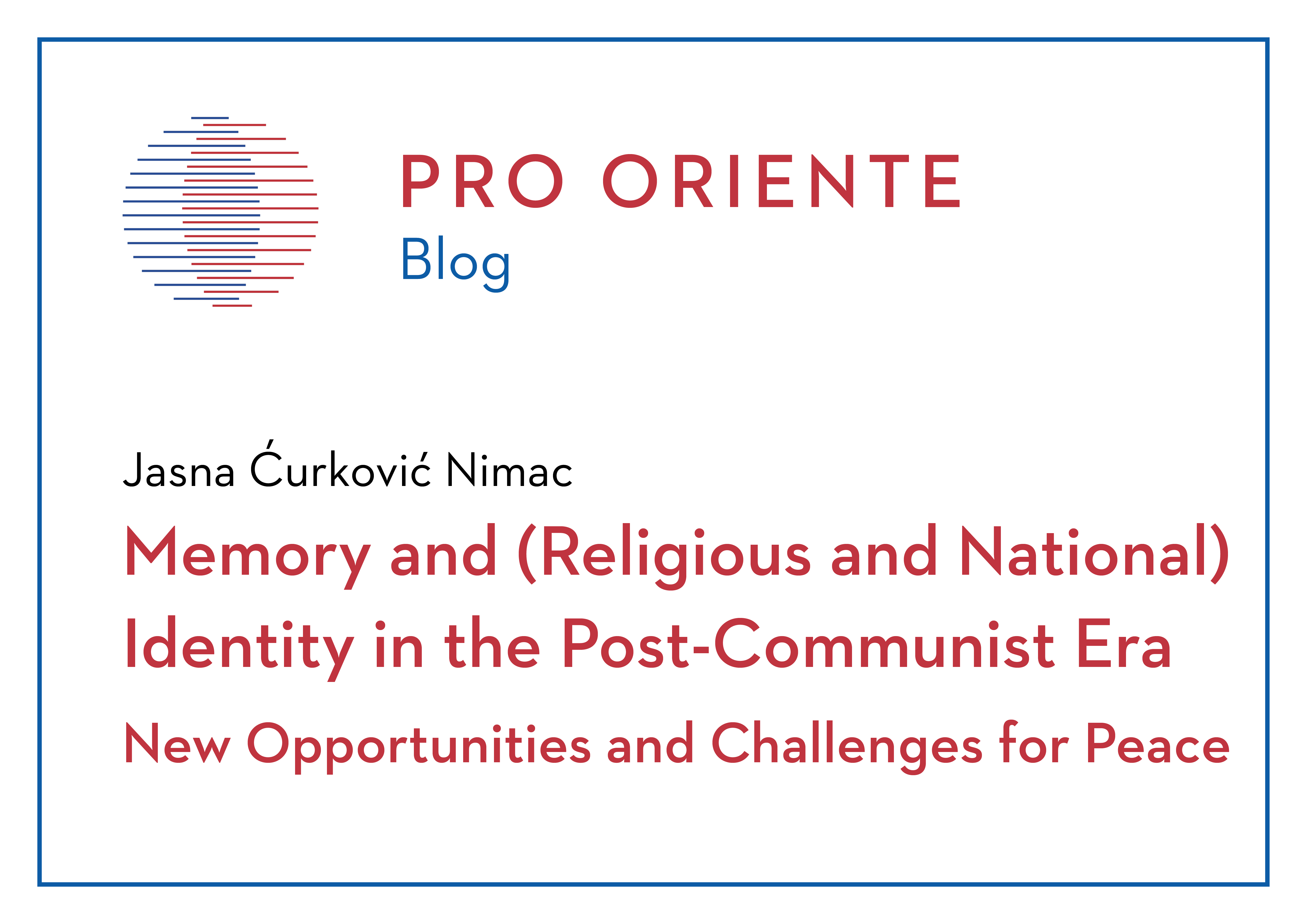Memory and (Religious and National) Identity in the Post-Communist Era – New Opportunities and Challenges for Peace
12. August 2024
Thema: Healing of Wounded Memories

Identity is a sociogenic and dynamic phenomenon that simultaneously acts as a factor of integration/inclusion and exclusion/separation. On the other hand, identity implies a certain sameness or self-awareness over time, and in this sense, memory plays an important role as the connective tissue of personal and collective identity. Given that the „other“ is often the context against which the image of oneself is created, memory can play an instrumental role in reinforcing the „useful“ narrative about oneself and the other to legitimize and justify exclusions and secure privileges.
Religious and national identities are two very important particular identities and, because they rest on organized systems, use very similar strategies and mechanisms for self-preservation, often overshadowing other important identities or intertwining too closely. After the collapse of the communist system, the states of the former Yugoslavia entered a period of nation-building and non-linear/late modernization on one hand, and the challenges of transnational alliances/identities like the EU, as well as globalization and migration processes on the other hand. In such an atmosphere, characterized by a lack of stable identity anchors and clearly defined identity policies, a postmodern tendency towards identity ambiguity and self-determination which is not rooted in history (Bauman, 2003), and simultaneous opposing processes of secularization and religious revival, an „obsession with memory“ (Huyssen, 1995,3) occurs, along with an increase in the use of memory (religious and national) as a surrogate for identification, but also as a medium for channeling various non-religious and non-patriotic tendencies in the name of religion and nation.
There is both a lot of the potential and problems of using memory in creating coexistence among different religious groups (noting that discussions on both trends - memory and religion - are on the rise) as a type of anchor in an increasingly uncertain world of rapid changes. For religious identity to develop, it needs stable points (traditional foundations or roots) as well as openness to change (future-oriented memory); thus, the challenges of achieving such a balanced approach are moral imperative for the development of religious identity in an increasingly turbulent and polarized world. Given new research within memory studies related to the so-called „digital turn“, which points to an increasingly prevalent memory prosumerism or grassroots mnemonic activism, we witness lots of possibilities of democratizing memory alongside the potentials/dangers of new technologies (social media and AI) as new systems of power and memory gatekeepers in the „post-scarcity“ culture (Hoskins, 2014).



